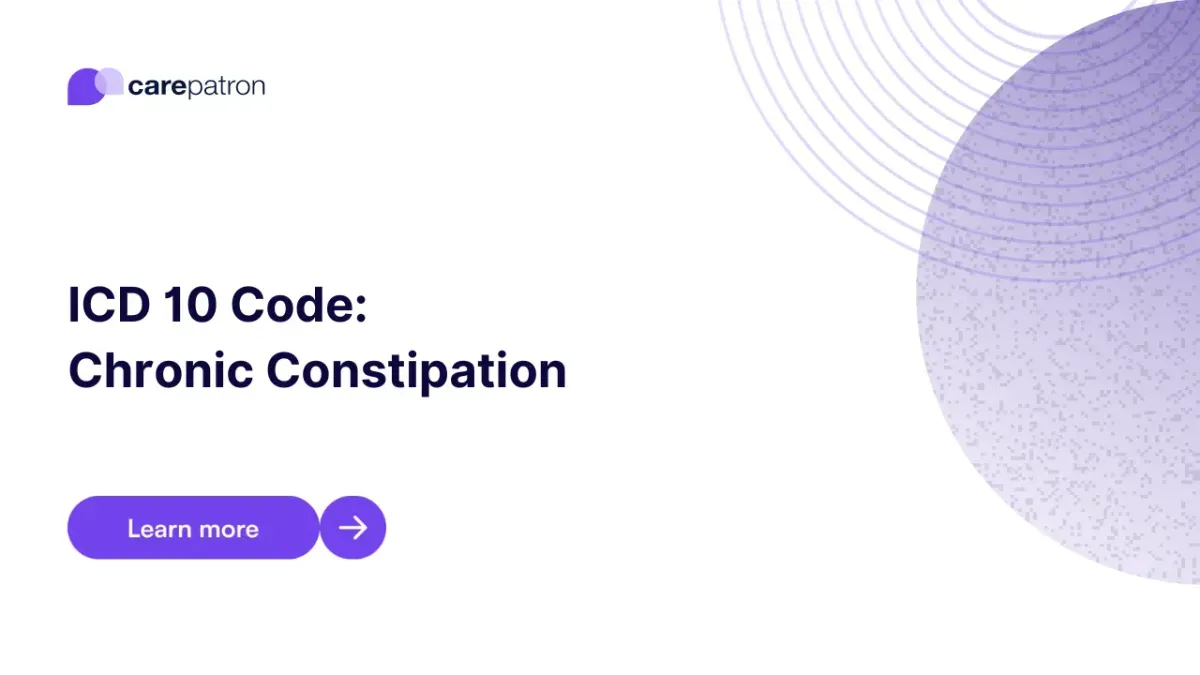
Chronic Constipation ICD-10-CM Codes
Read this short guide and learn about chronic constipation ICD codes you can use.
Use Code
Commonly asked questions
Only a few ICD-10-CM codes, like K59.04 for chronic idiopathic constipation, explicitly include "chronic constipation" in their names. However, related conditions such as opioid induced constipation and slow transit constipation are covered under other applicable diagnosis codes.
Constipation can be caused by a low-fiber diet, inadequate fluid intake, lack of exercise, or certain medications such as opioids. It may also stem from medical conditions like irritable bowel syndrome (IBS), neurological disorders, or disruptions in the digestive system.
Treatment for constipation often includes increasing fiber and fluid intake, regular physical activity, and using over-the-counter laxatives if needed. In more chronic or drug-induced cases, prescription medications or targeted therapies may be required under a provider’s care.
EHR and practice management software
Get started for free
*No credit card required
Free
$0/usd
Unlimited clients
Telehealth
1GB of storage
Client portal text
Automated billing and online payments
